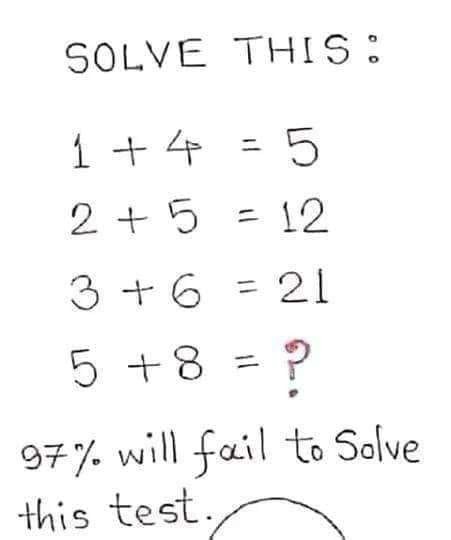Solving riddles offers significant benefits.
It sharpens critical thinking and problem-solving skills, fostering creativity and analytical abilities. Riddles also enhance cognitive functions, improving memory, focus, and mental agility, keeping the mind active and healthy. They serve as a stress reliever, providing a fun and engaging way to relax. Successfully solving riddles brings a sense of achievement, boosting confidence and mood. Additionally, riddles encourage social interaction and teamwork when solved in groups, promoting communication skills.
Overall, engaging with riddles supports mental well-being, cognitive health, and provides an enjoyable and rewarding challenge.
Check the quiz below:

Can you find the answer?
Check the answer below:
Certainly! Let’s analyze the given equations and identify the pattern.
- 1+4=5
- 2+5=12
- 3+6=21
- 5+8=?
At first glance, the equations do not follow the standard arithmetic rules. We need to identify a pattern or a rule that applies to all the given equations.
Let’s examine the progression:
For 1+4=5:This seems straightforward; however, let’s consider a different approach:
If we think of the answer as (1+4)+(previousresult):
1+4=5
For 2+5=12:
(2+5)+5=12
Here, 5 is the result of the previous equation.
For 3+6=21
(3+6)+12=21
Here, 12 is the result of the previous equation.
Following this pattern, we get:
For 5+8=?:
(5+8)+21=34
Here, 21 is the result of the previous equation.
So, 5+8=34
Therefore, the answer is 34.








